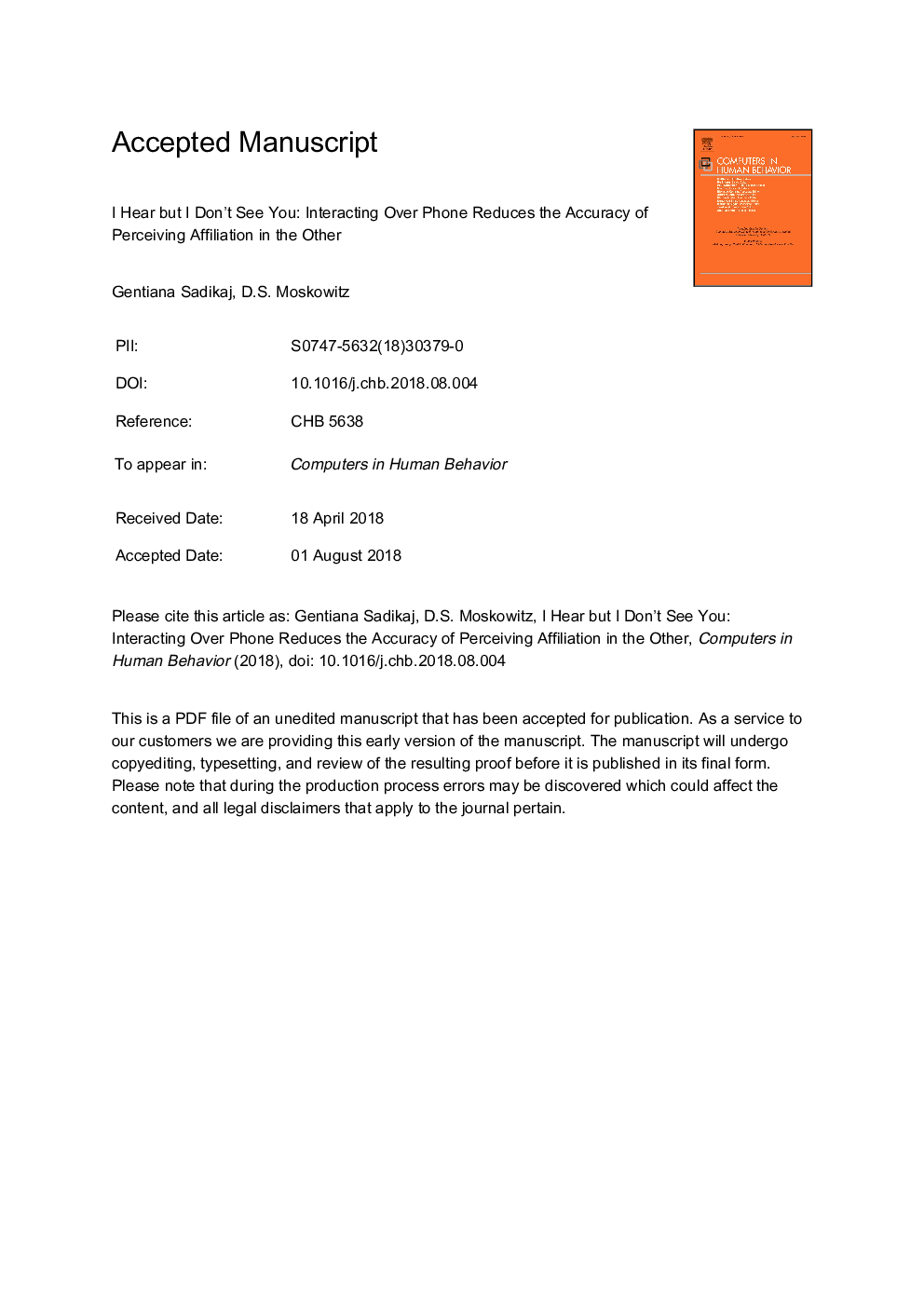| Article ID | Journal | Published Year | Pages | File Type |
|---|---|---|---|---|
| 6835653 | Computers in Human Behavior | 2018 | 31 Pages |
Abstract
In-person interactions are characterized by better psychological and interpersonal outcomes than technology-mediated interactions. These benefits are thought to stem from the presence of more communication channels for the expression and reception of affiliative cues and the effortless processing of these cues. We investigated whether in-person versus phone-mediated interactions are characterized by higher accuracy of perceiving the other's affiliation and higher bias of assumed similarity with this other regarding affiliation. Using an event-contingent recording methodology, cohabitating romantic partners reported their perception of the other's affiliative behavior and their affiliative behavior in interactions with each other during a 20-day interval. Participants during in-person interactions (1) were more accurate in perceiving affiliative behavior and (2) assumed greater similarity between their own and their partner's affiliative behavior. Findings suggest that greater accuracy in perceiving affiliation and assumption of similarity with the romantic partner with respect to affiliation may in part explain the benefits of in-person interactions.
Related Topics
Physical Sciences and Engineering
Computer Science
Computer Science Applications
Authors
Gentiana Sadikaj, D.S. Moskowitz,
